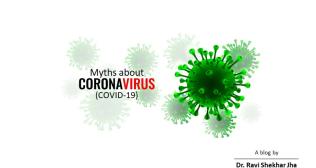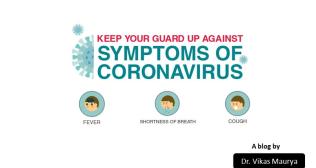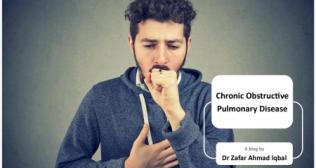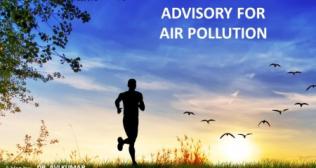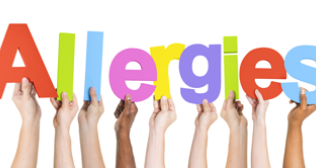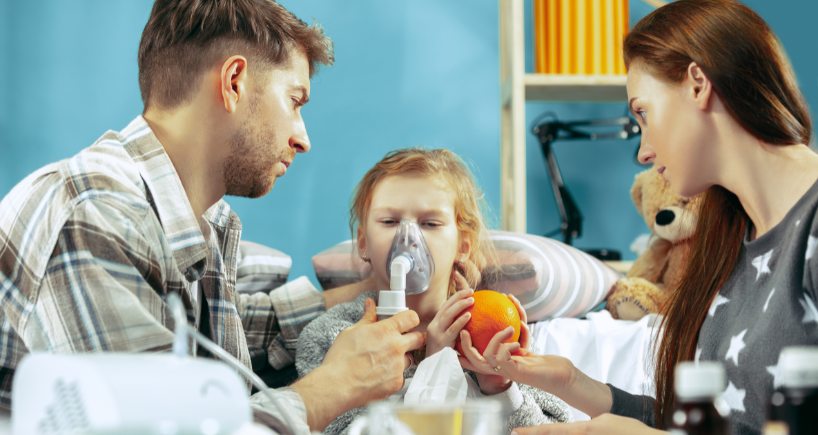
How to Protect Your Children with Respiratory Conditions in Diwali
Introduction
Is Diwali your child’s favourite festival? Do they enjoy lighting diyas and firecrackers and, of course, eating a variety of sweets? Festivities are in full flow as Diwali draws near. Even though the event is known for its happiness and good vibes, you must remember how important it is to keep your kids safe. Being careful with fireworks is only one aspect of safety. Another is protecting them from anything that can endanger their health and welfare. Children’s respiratory disorders may worsen during Diwali due to fireworks, smoke, and elevated air pollution.
Which respiratory conditions may develop?
Diwali is a festival of lights and, not to forget, fireworks/crackers. They are likely to cause pollution and smoke, resulting in various respiratory conditions in children. Here are some common respiratory conditions that are caused during this festival.
- Asthma: Asthma is a chronic disease that affects both adults and children over a long period of time; hence, it is referred to as a chronic disease. The common symptoms of asthma are wheezing, shortness of breath, coughing, etc. These symptoms can be triggered by allergens, changes in weather, smoke, respiratory infections, etc. It is mainly caused by genetic and environmental factors. It is also said to have been caused by certain medicines like aspirin and beta blockers. Asthma causes coughing, which releases sputum from the lungs, which is frequently difficult to bring up. It is due to an increase in the levels of eosinophils, a kind of white blood cell. Generally, the symptoms may worsen during the night and during extreme cold weather. While in some cases, it can get worse when you do extreme physical activities that result in shortness of breath and breathing difficulty.
- Bronchitis: It is a condition of inflammation of the airways leading into the lungs. In this condition, the airways get irritated and swell up with mucus, causing cough. It is caused due to viral infection. The symptoms include dyspnoea, fever, runny nose, and weakness. There are two types of bronchitis:
Acute bronchitis: Short-term bronchitis
Chronic bronchitis: Long-term bronchitis
COPD: Chronic obstructive pulmonary disease is an irreversible lung and airway damage that obstructs the airways that pass through the lungs. This results in breathing difficulties, loss of elasticity of airways and air sacs, narrowing of airways, and damage of walls between alveoli. The symptoms include wheezing, dense mucus, cough, difficulty taking deep breaths, lung sounds, barrel-shaped chest, and bluish skin.
Allergic rhinitis: It is a condition caused by pollutants that trigger allergic reactions in kids. As a result, it leads to sneezing, nasal congestion, runny nose, and itchy eyes.
Pneumonia: It is an infectious condition that affects the lungs by bacteria, viruses, or fungi. It causes inflammation, leading to swelling of the lungs and pus formation in the lungs.
How are the conditions treated?
Medications: The proper medications for asthma depend on individual age, gender, symptoms, and allergic triggers. Quick-relief inhalers, also called bronchodilators, are used to quickly open the airways, which limits breathing and helps with easy breathing.
- Corticosteroids
- Leukotriene modifiers
- Combination Inhalers
- Anticholinergic agents
- Allergy shots/immunotherapy
Preventive measures
Above are some of the respiratory conditions that are seen in children after the Diwali festival. So, how do we prevent them? What are the preventive measures you must take? Let’s know them,
- Speak to your children about the pollutants from the fireworks and guide them to take care of themselves.
- Explain to them the safety measures they must follow during fireworks.
- Make them stay indoors when the pollution and smoke levels are high.
- Avoid any outdoor activities when the air quality is unfit for breathing.
- Close the doors and windows during fireworks to avoid the smoke or pollutants entering your house.
- Make your children wear masks when they go outdoors or during fireworks.
- Use air purifiers to decrease the pollutant levels.
- Keep the air conditioner on inside your house as it filters the air.
- Encourage your children to light diyas/lamps inside the house instead of lighting crackers.
- Avoid using sparklers or scented candles indoors.
- Always keep attention to your child for any symptoms or signs of respiratory conditions so that you can treat them as soon as possible.
- Reduce outdoor air exposure.
- Consult a lung specialist near your location if there is any emergency.
Conclusion
To conclude, Diwali is a time for celebration and joy, but it’s important to keep your children safe first. Make sure kids are under supervision when they use fireworks. Respiratory disorders in children may worsen during Diwali due to fireworks, smoke, and elevated air pollution. So, establish a secure play space free from dangers and pollution. Follow the safety measures to prevent any respiratory conditions. Finally, teach them the importance of responsibility by reminding them to be aware of their activities so that they can have a safe and happy Diwali with their loved ones.








